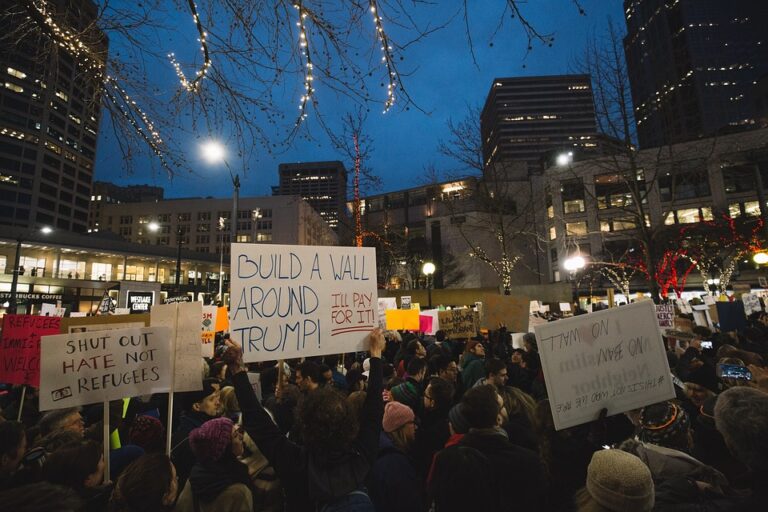Trump Issues Ultimatum to Hamas on Hostage Release, Threatening Fragile Ceasefire
In a developing situation that has captured global attention, former President Donald Trump has issued a stark ultimatum to Hamas regarding the release of hostages. This move not only intensifies the already fraught dynamics of the ongoing conflict but also risks unraveling a fragile ceasefire that has been tenuously holding since the last escalation of violence.
According to recent estimates, there are over 200 hostages currently held by Hamas, including civilians and military personnel from different nations. Trump’s ultimatum comes as a desperate plea for immediate action, underscoring the plight of these individuals in a complex geopolitical crisis. He has publicly stated that the release of hostages is non-negotiable and a primary condition for any further talks of ceasefire extensions.

The ceasefire, which was put into place to facilitate humanitarian aid and negotiations, is already under significant strain. Speaking at a recent rally, Trump claimed that Hamas is using the hostages as pawns and wielding their lives to manipulate international sentiment. “They need to understand,” he emphasized, “that every hour they delay means more pressure from the international community. If they don’t comply, they will face severe repercussions.”
The conflict has prompted considerable international concern, particularly from nations with vested interests in the region. A recent poll indicated that 68% of Americans support measures that ensure the safety of hostages, even if it requires a direct confrontation with Hamas. This statistic reflects a growing desire among the U.S. populace for decisive action in the face of enduring hostilities.

In response to Trump’s statements, Hamas leaders have dismissed the ultimatum, describing it as a publicity stunt that lacks understanding of the complexities involved. Hamas maintains that any discussions around hostages must also address the wider grievances of the Palestinian people, including economic hardship and territorial disputes. The group argues that the plight of these individuals cannot be separated from the ongoing struggle for rights and sovereignty.
The statistics surrounding the humanitarian crisis in Gaza speak volumes. The United Nations estimates that more than 1.5 million people are in dire need of assistance due to the ongoing blockades and military actions. Moreover, food insecurity rates have soared, with 70% of households now considered food insecure. The continued fighting, coupled with Trump’s ultimatum, further complicates these humanitarian efforts.

In the context of international relations, this ultimatum could have ramifications beyond just the immediate conflict. A breakdown in talks could draw in larger powers, affecting not only the Middle East but also U.S.-China relations as both nations vie for influence in the region. Analysts warn that should hostilities resume, the resulting instability could create a vacuum that extremist groups might exploit.
There is also a risk of escalating domestic tensions. As the situation unfolds, Trump’s recent statements have reignited heated debates within the United States regarding foreign policy and national security. Recent polls show a split among Republican voters, with about 45% supporting Trump’s hardline approach while 30% favor seeking diplomatic solutions.

As the world watches, President Biden’s administration has been put in a challenging position. While supporting efforts to ensure the swift release of hostages, it must also navigate the delicate landscape of international diplomacy. Any miscalculation could jeopardize the ceasefire and lead to renewed conflict, a reality that Biden continues to bear on his strategic agenda.
In conclusion, Trump’s ultimatum to Hamas brings urgency to a situation that could tip the balance of peace in the Middle East. With lives hanging in the balance, the stakes are higher than ever. The coming days will be crucial as international opinion, domestic pressures, and the humanitarian needs of the hostages intersect in this volatile environment. The world watches and waits, hoping for a resolution that prioritizes human life over political posturing.
For more updates on this evolving story, ensure to follow credible news sources and keep an eye on the humanitarian efforts being made in the region.


